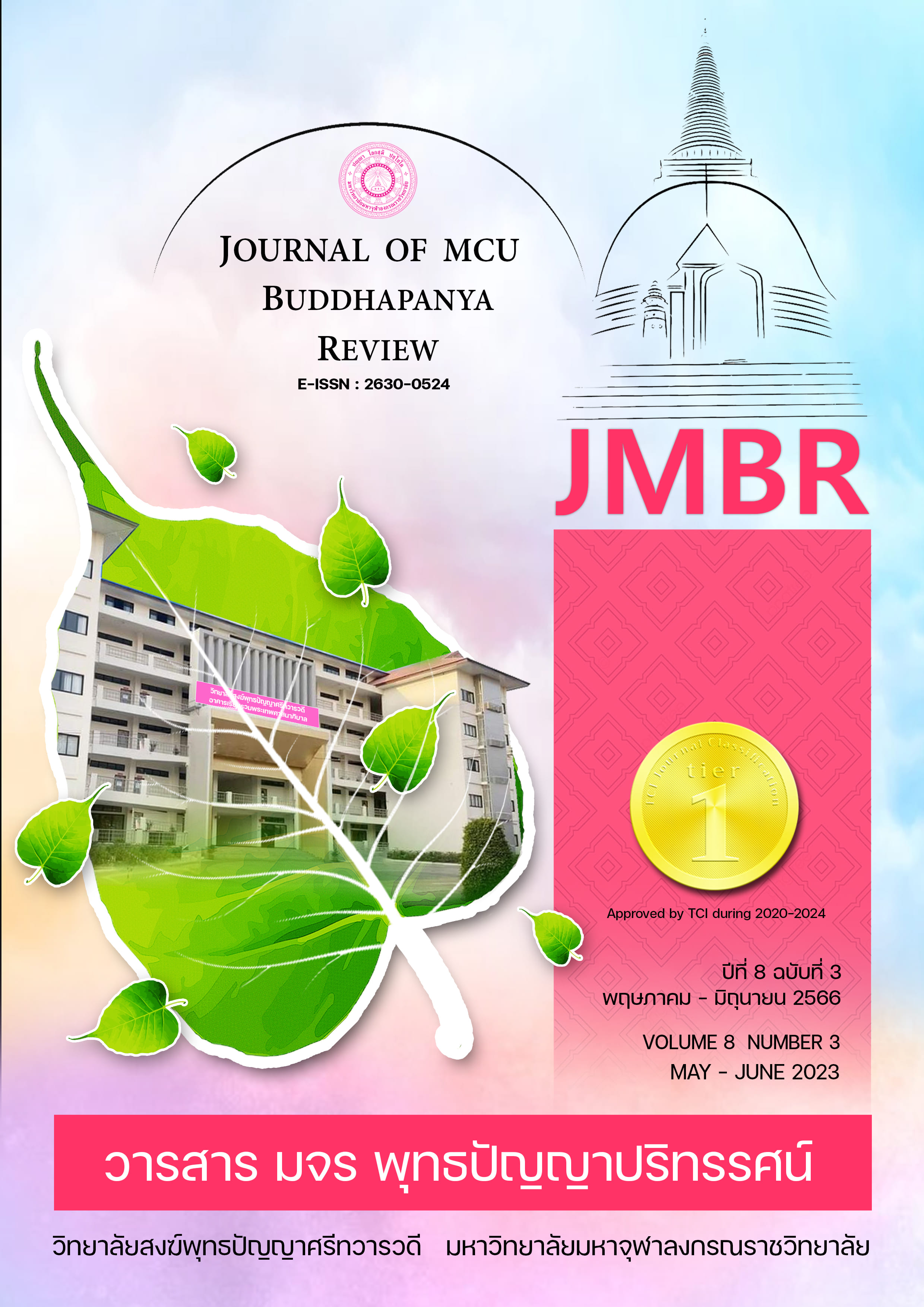การบริหารจัดการมรดกทางวัฒนธรรมและภูมิปัญญาท้องถิ่นชาวจีนไหหลำ ณ บ้านเกาะแรต อำเภอดอนสัก จังหวัดสุราษฎร์ธานี
คำสำคัญ:
การบริหารจัดการมรดกทางวัฒนธรรม, ภูมิปัญญาท้องถิ่น, ชาวจีนไหหลำ, บ้านเกาะแรตบทคัดย่อ
วัฒนธรรม ประเพณี ความเชื่อต่าง ๆ ตลอดจนภูมิปัญญาภายในชุมชนที่มีอัตลักษณ์และการสืบทอดต่อเนื่องกันมา เป็นรากฐานสำคัญในการนำไปสู่การบริหารจัดการมรดกทางวัฒนธรรมให้คงอยู่คู่ชุมชน บทความวิชาการฉบับนี้จึงมีวัตถุประสงค์เพื่อศึกษาการบริหารจัดการมรดกทางวัฒนธรรมและภูมิปัญญาท้องถิ่นชาวจีนไหหลำ ณ บ้านเกาะแรต อำเภอดอนสัก จังหวัดสุราษฎร์ธานี โดยพบว่า การมีส่วนร่วมในการบริหารจัดการมรดกวัฒนธรรมเป็นกลไกสำคัญที่ช่วยให้การบริหารจัดการมรดกทางวัฒนธรรมสำเร็จลุล่วงไปได้ด้วยดี ที่ประกอบไปด้วยแนวทางในการจัดการทรัพยากรธรรมชาติและสิ่งแวดล้อมของชุมชน แนวทางในการอนุรักษ์พัฒนาพื้นที่ว่างสาธารณะและลานชุมชน และแนวทางในการอนุรักษ์และส่งเสริมมรดกภูมิปัญญาทางวัฒนธรรม ดังนั้นแนวทางเหล่านี้จะเป็นแนวทางในการบริหารจัดการมรดกทางวัฒนธรรมบนพื้นฐานทรัพยากรที่มีอยู่อย่างหลากหลายของบ้านเกาะแรต เพื่อให้มรดกทางวัฒนธรรมเหล่านั้นคงอยู่คู่กับชุมชนต่อไปอย่างยั่งยืน
เอกสารอ้างอิง
Chitdarom Rattanawut. (2013). Legislative measures to promote the conservation and protection of cultural heritage. Law and Local Society Journal, 1(1): 144-155. (in Thai)
Icomos Thailand. (2011). Charter of Thailand on Management of Cultural Heritage Sites. Retrieved March 2022, https://www.icomosthai.org/. (in Thai)
Jaruek Aupala . (2021). Koh Rat, Donsak District, Surat Thani Province, Thailand, Village sage of Koh Rat, Donsak District, Surat Thani Province, Thailand. [Interview]
Kamini Wijesuriya. (2008). Architectural knowledge as an intangible cultural heritage. Minutes of the International Seminar Cultural Heritage Management and International Ideas 6-8 August 2008. Organized by the Fine Arts Department Ministry of Culture, p4. (in Thai)
Nara Phongphanich Sutee Srifa and Chatchai Pongpichitchai. (2020). Guidelines for a Rehabilitation of Old Community on a Small Island: A Case Study of Koh Rat, Donsak District, Surat Thani Province, Thailand. University of the Thai Chamber of Commerce Journal, 40(4): 140-168. (in Thai)
Nhampit Satsanguan. (2000). Principles of Cultural Anthropology (4th ed.). Bangkok: Racha Printing Company, 20-22. (in Thai)
Office of the National Education Commission. (1999). Concepts and case studies on ways to promote wisdom abroad. Bangkok: TP Printing Company Limited, p20-21. (in Thai)
Phumpanyathai. (2015). Intangible cultural heritage. Retrieved March 2022, http://phumpunyathai.blogspot.com/2015/01/blog-post_30.html (in Thai)
Srisak Wanlipodom. (2004). The Nature of All Things: Access to All Truth “Humanity and social-cultural development”. Bangkok: Sodsri-Saritwong Foundation, p225-226. (in Thai)
Sucheve Punyanuparp. (1957). Cultural Sciences. Bangkok: Religious Printing press, p118. (in Thai)
Tanick Lertchanrit. (2007). Cultural resource management. Bangkok: Silpakorn University, p45. (in Thai)
Thananan Boonwanna. (2021). Cultural Heritage Management. Retrieved March 2022, https://1tambon.kku.ac.th/. (in Thai)
UNESCO. (2017). Intangible Cultural Heritage. Retrieved March 2022, https://ich.unesco.org/doc/src/34299-TH.pdf. (in Thai)
Vitsapat Chaichuay. (2017). Sarasonthet Moradok Thang Watthanatham: Naeokhit Lae Praden Kan Wichai. [Cultural Heritage Information: Concept and Research Issues]. Journal of Information Science, 35(2): 130-153. (in Thai)
ดาวน์โหลด
เผยแพร่แล้ว
รูปแบบการอ้างอิง
ฉบับ
ประเภทบทความ
สัญญาอนุญาต
ลิขสิทธิ์ (c) 2023 วารสาร มจร พุทธปัญญาปริทรรศน์

อนุญาตภายใต้เงื่อนไข Creative Commons Attribution-NonCommercial-NoDerivatives 4.0 International License.



